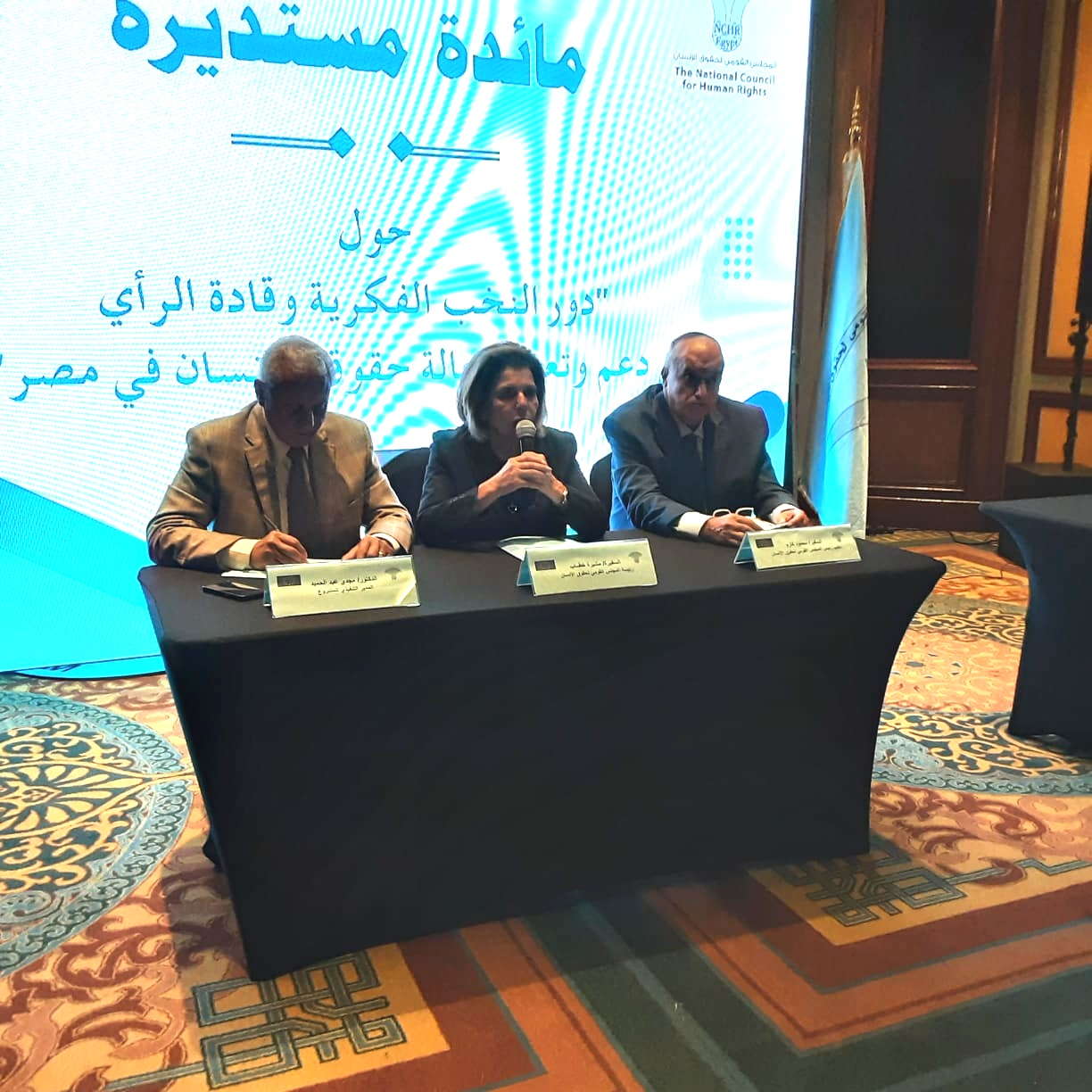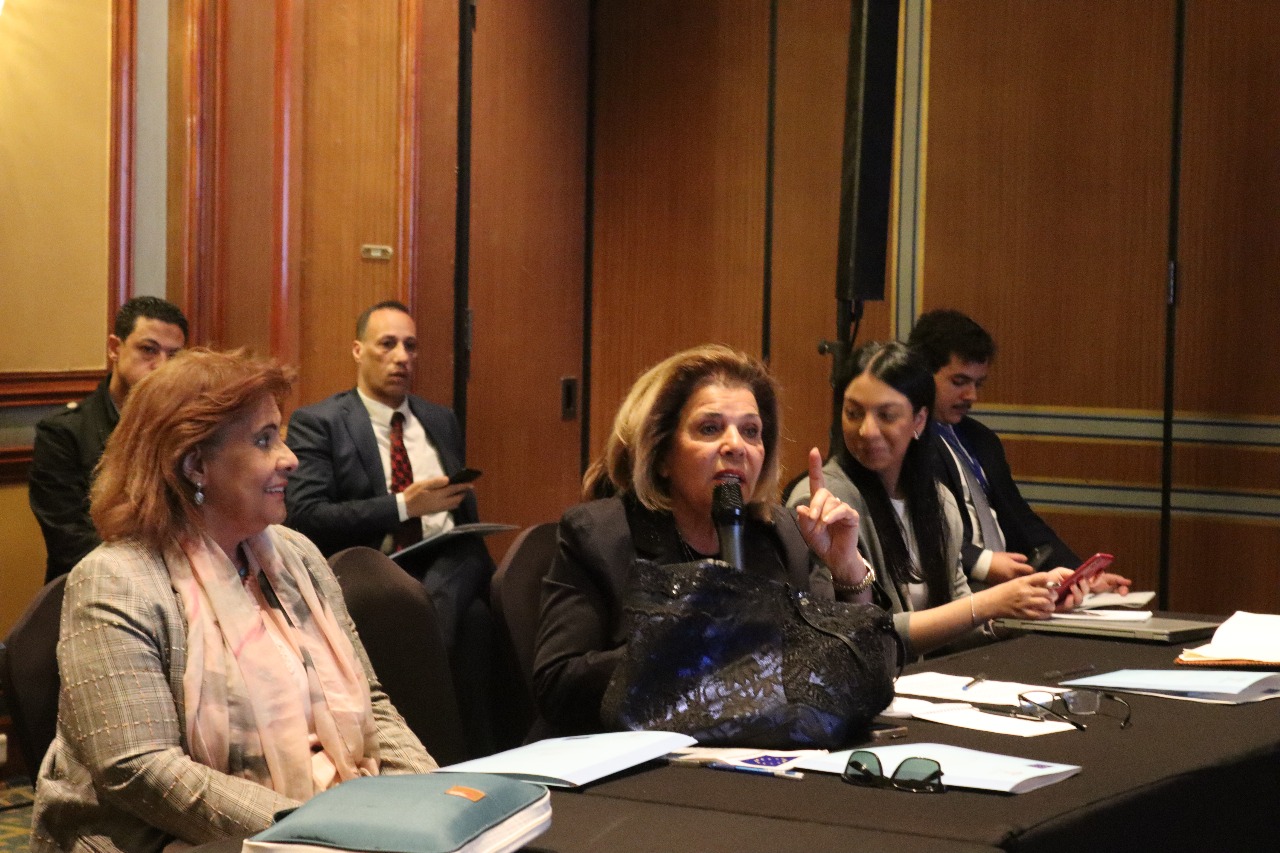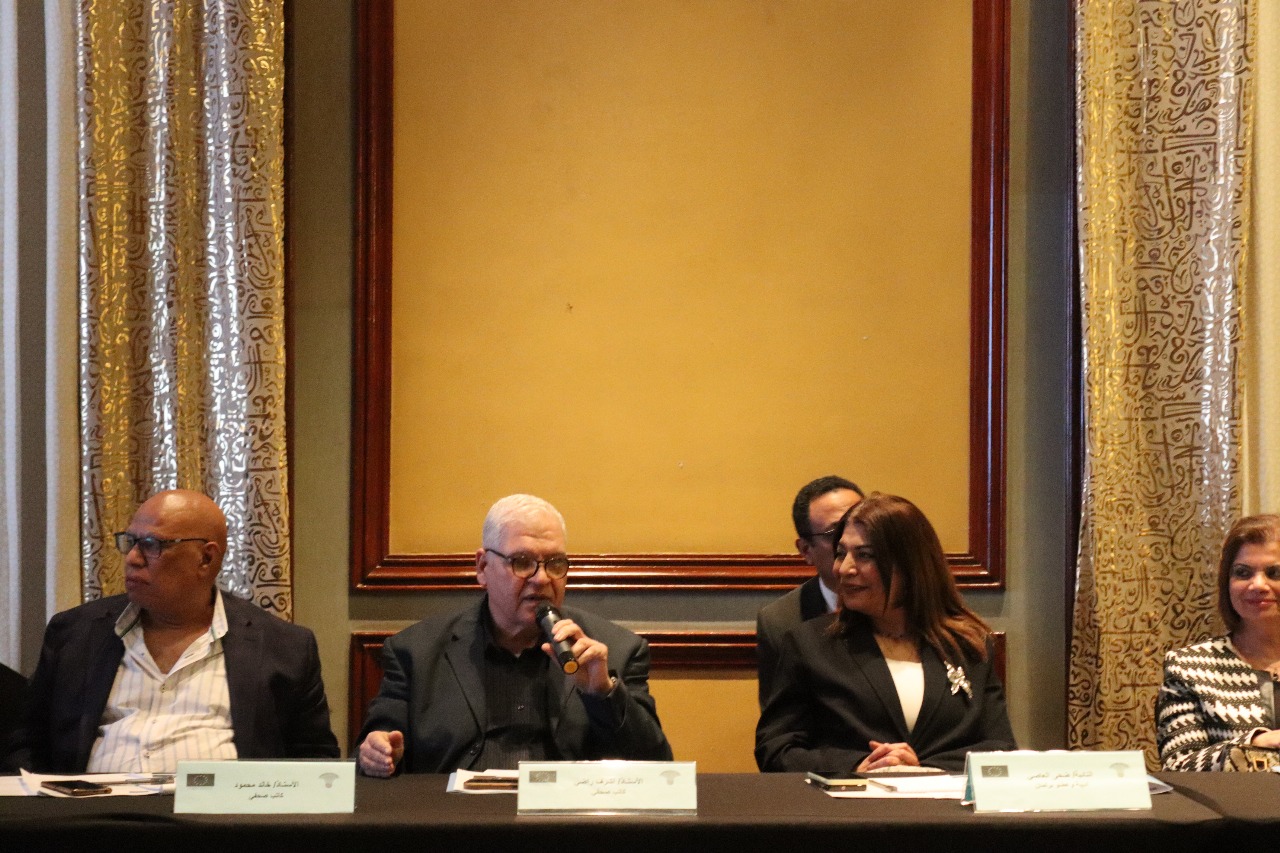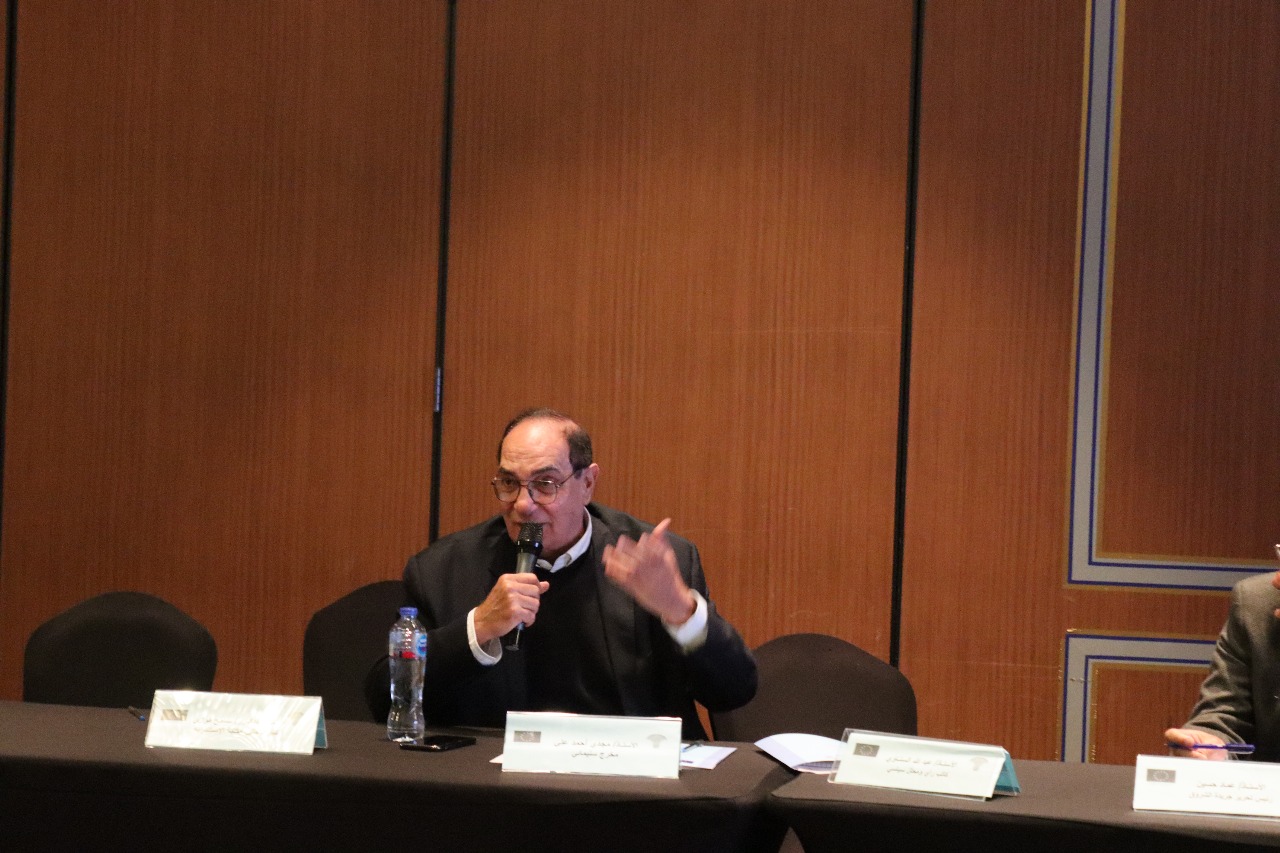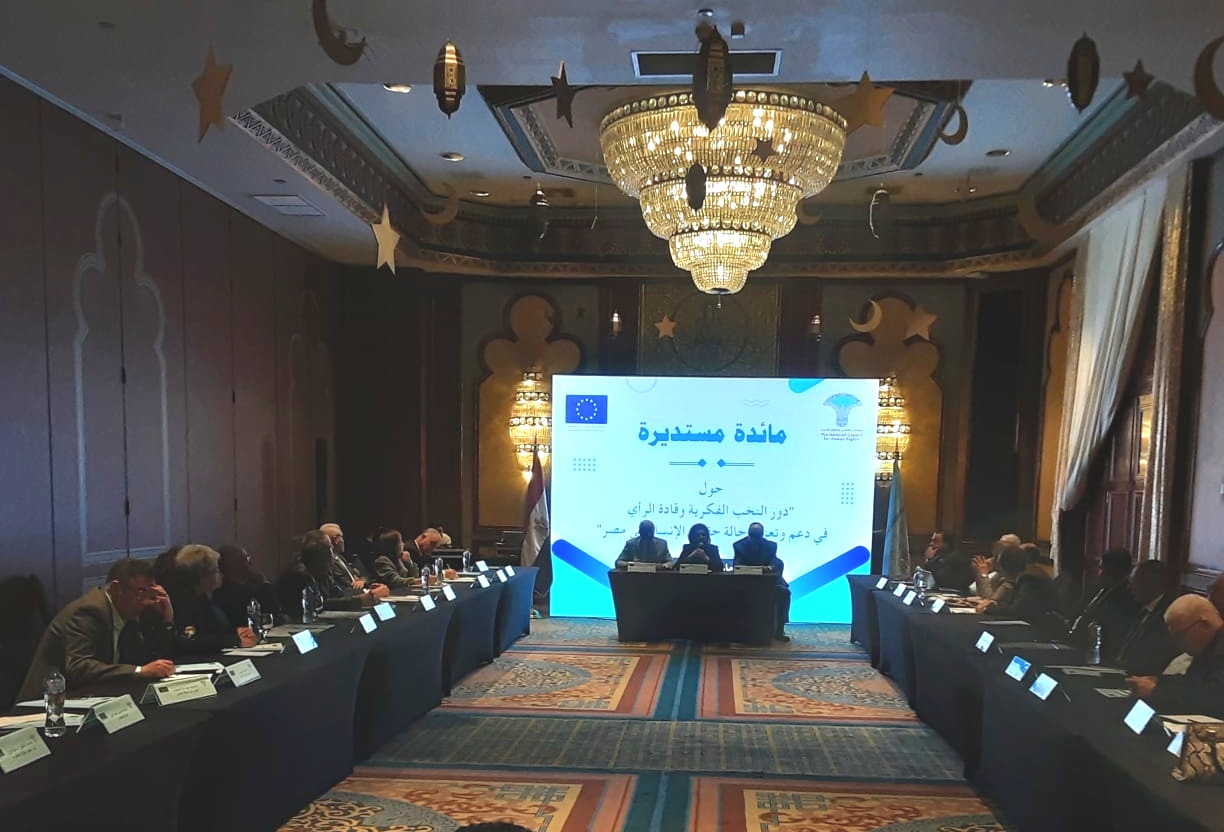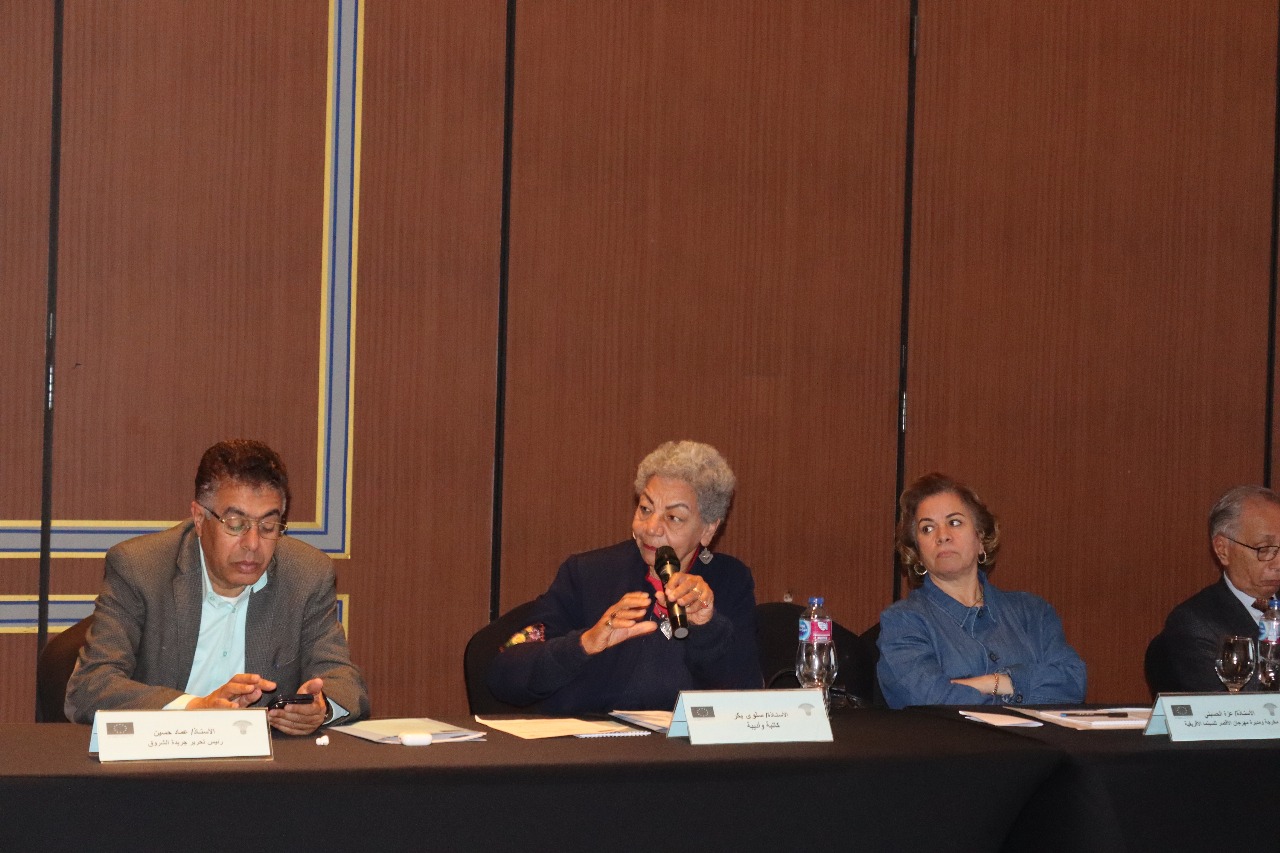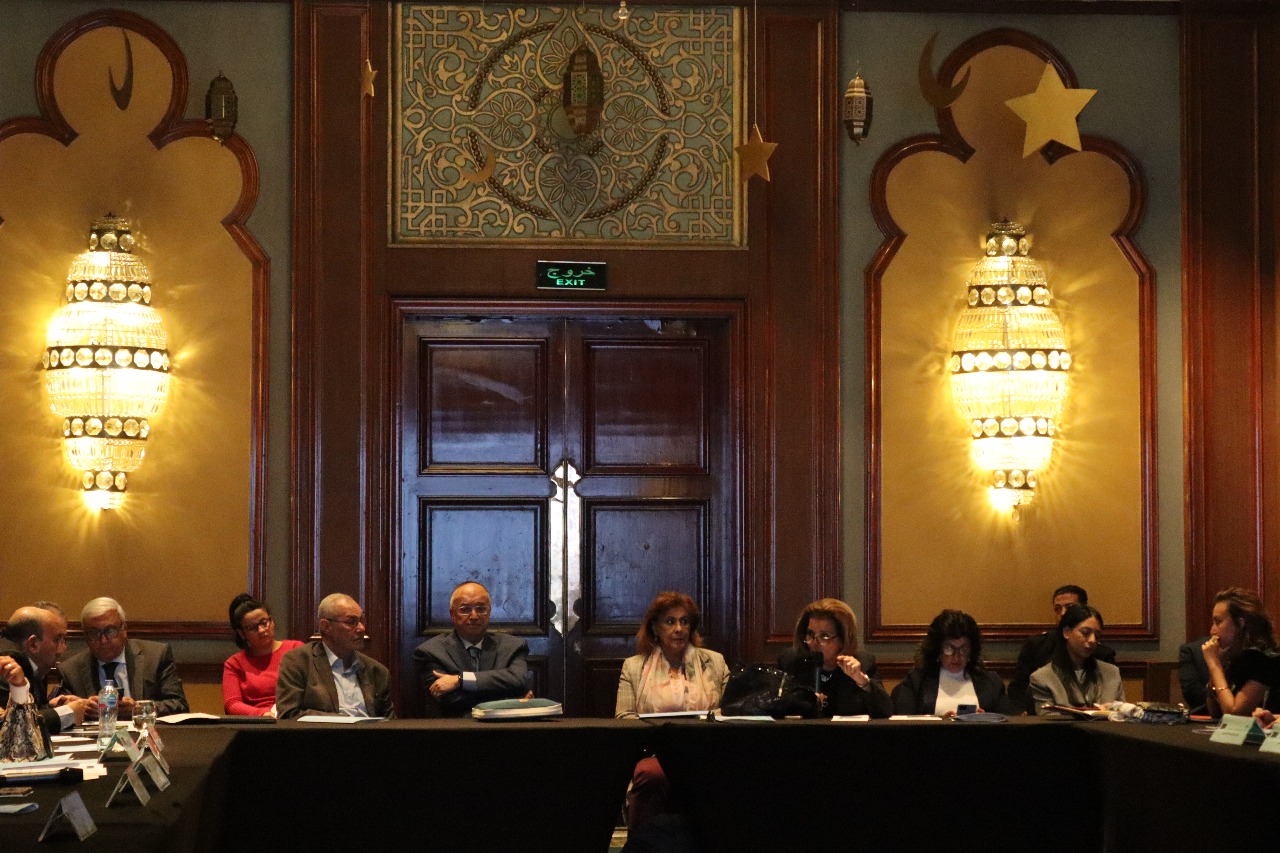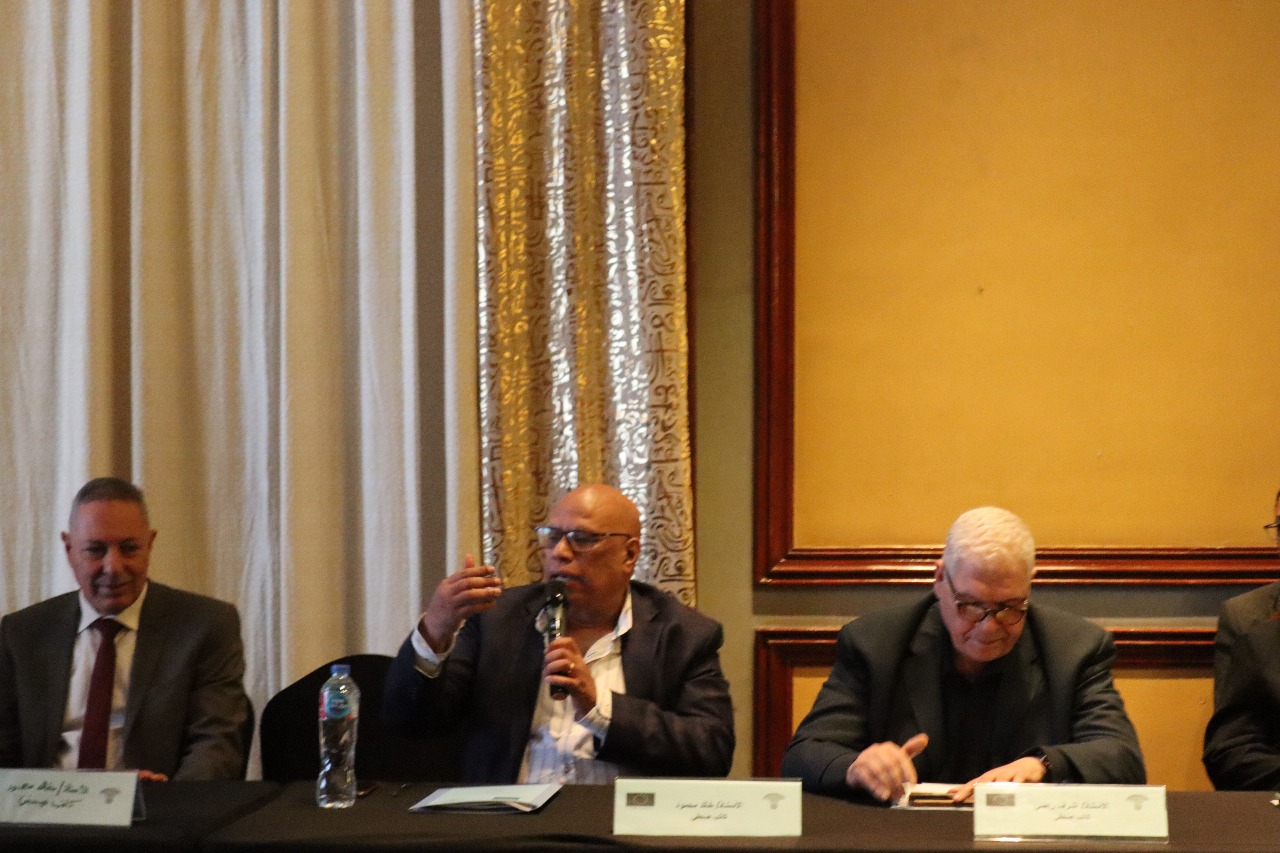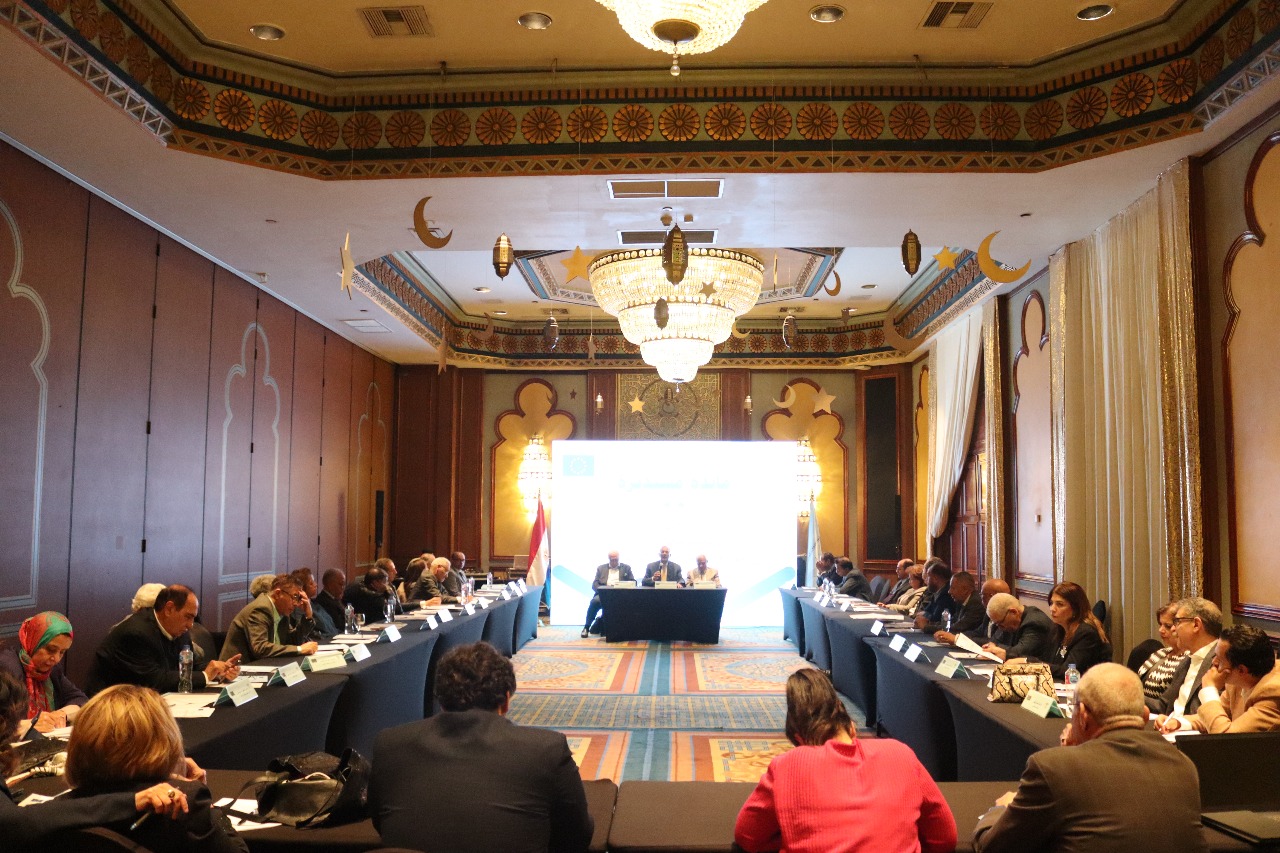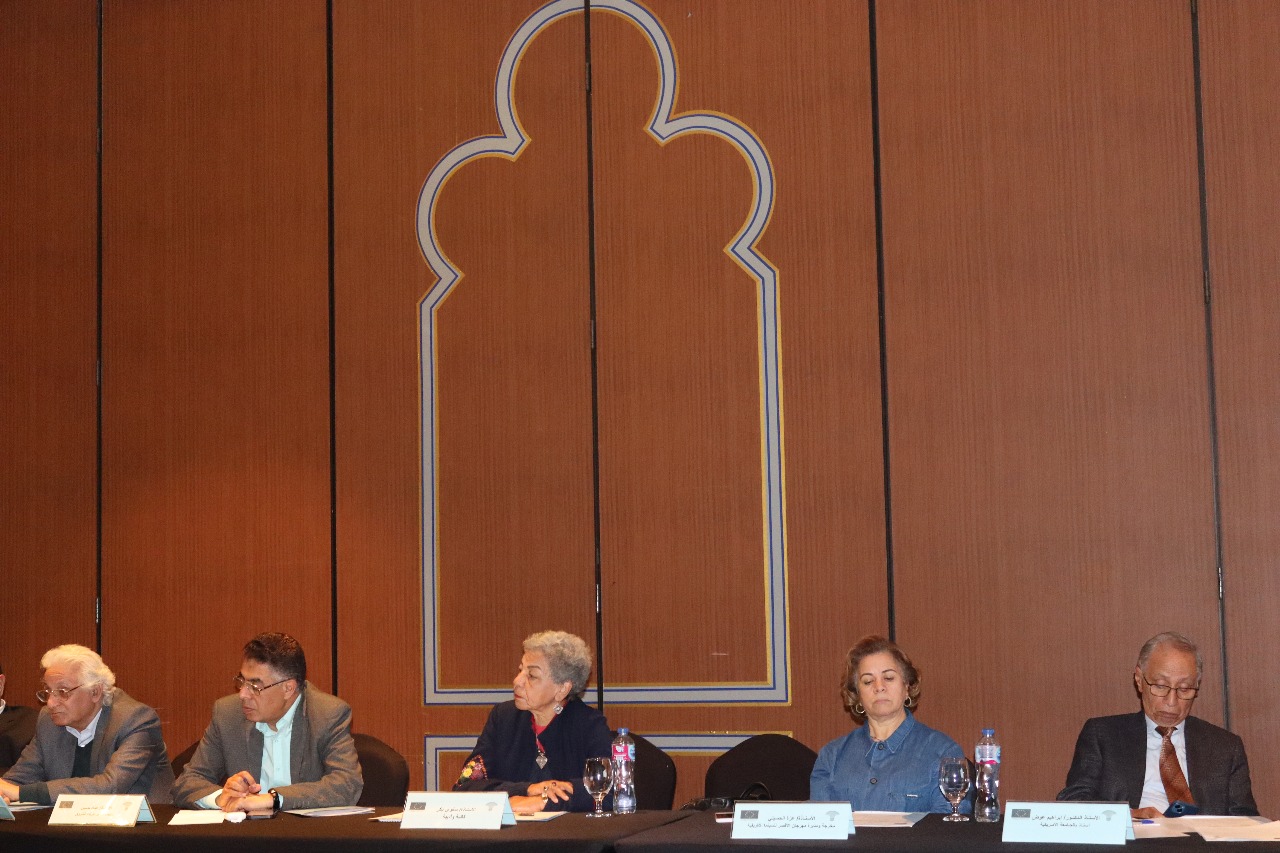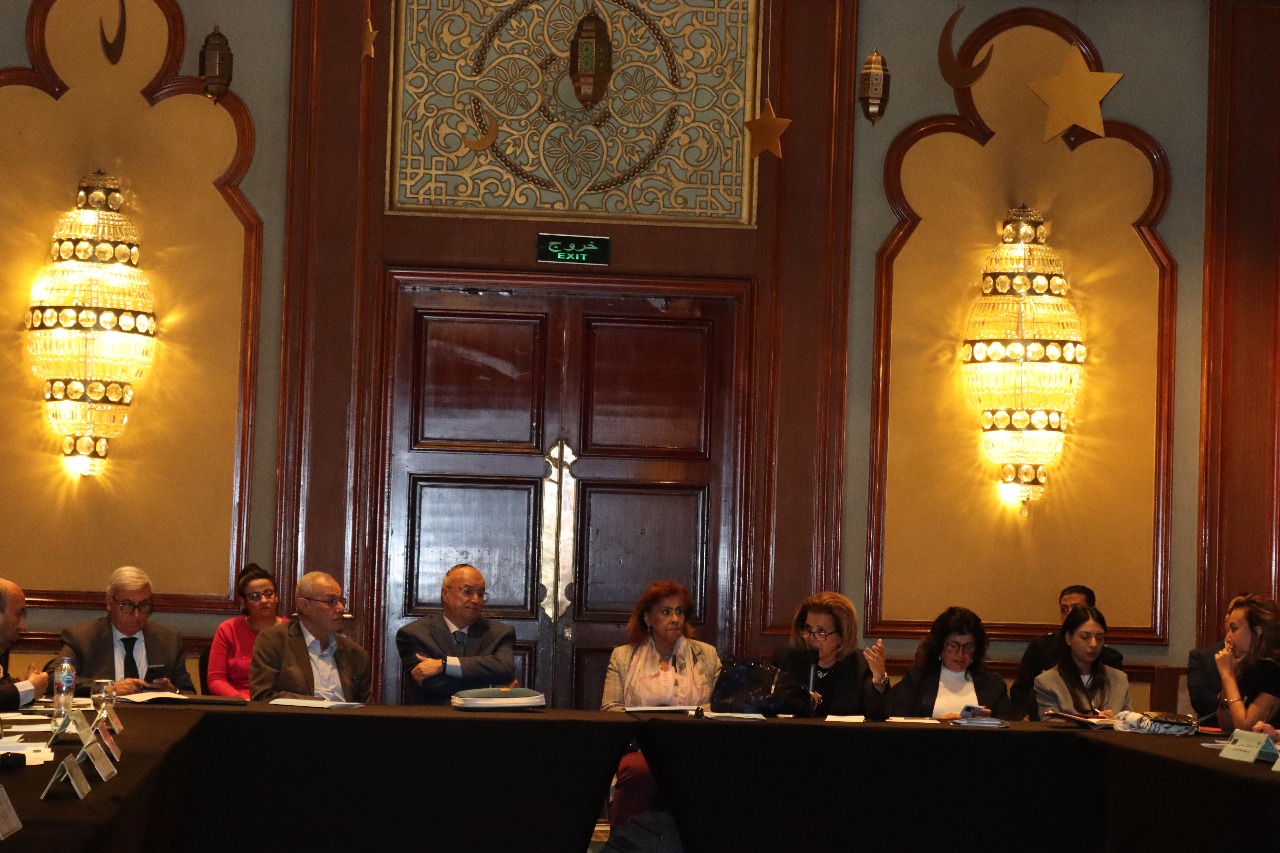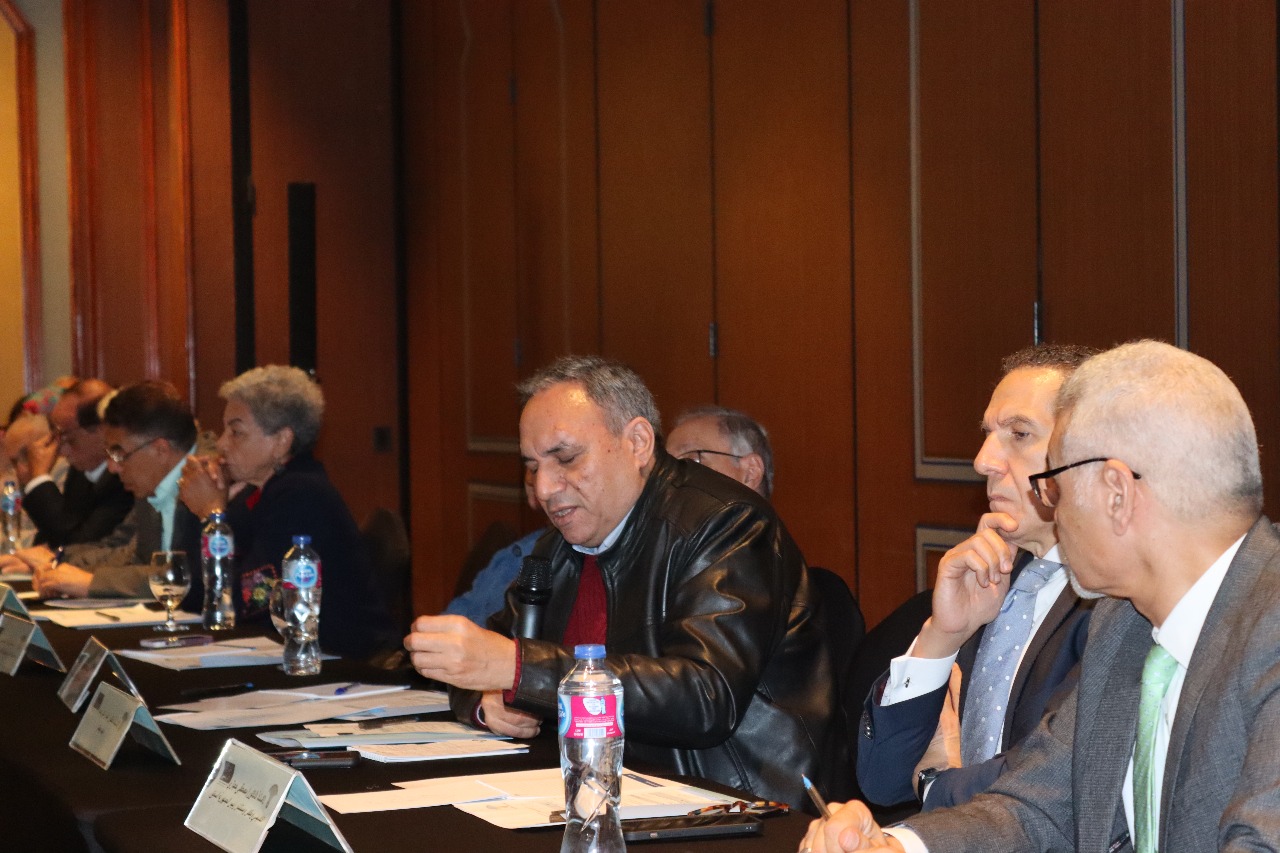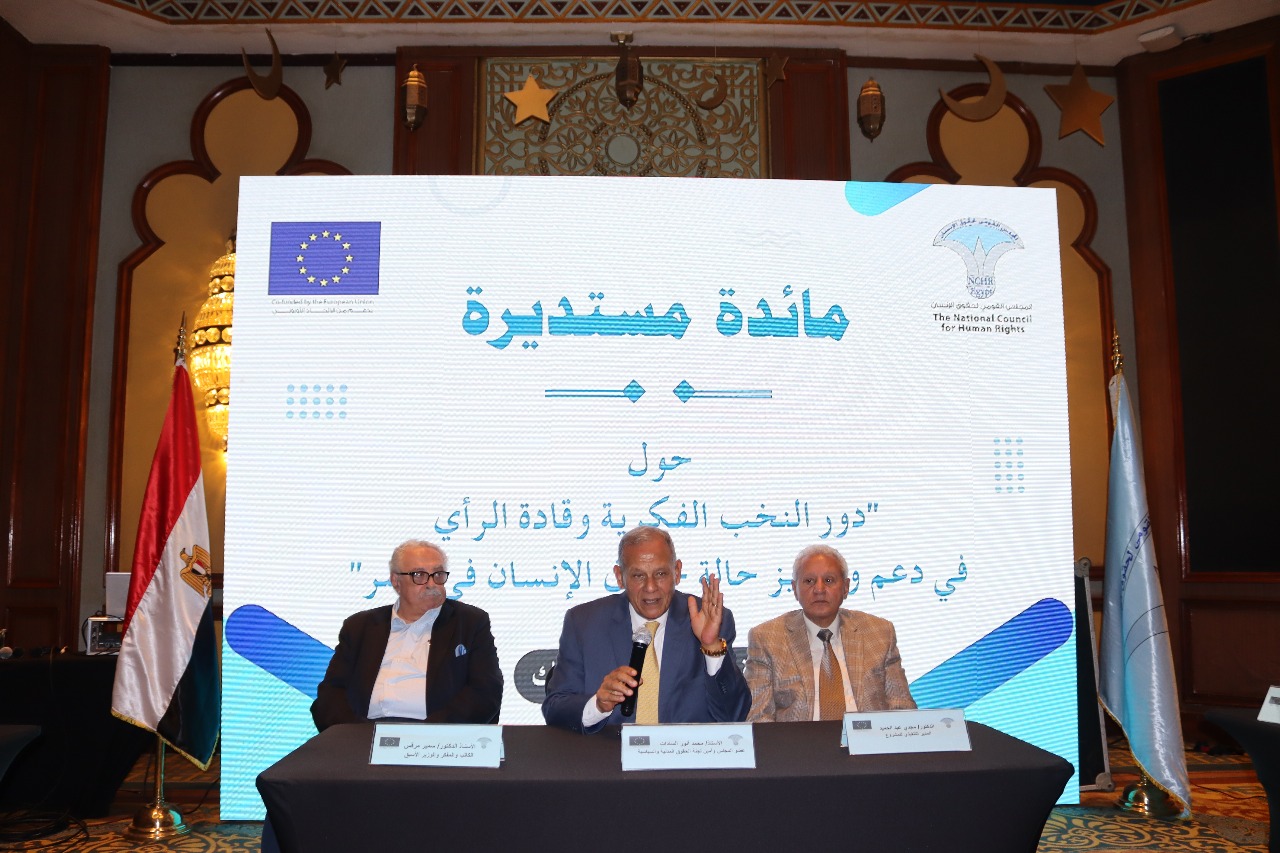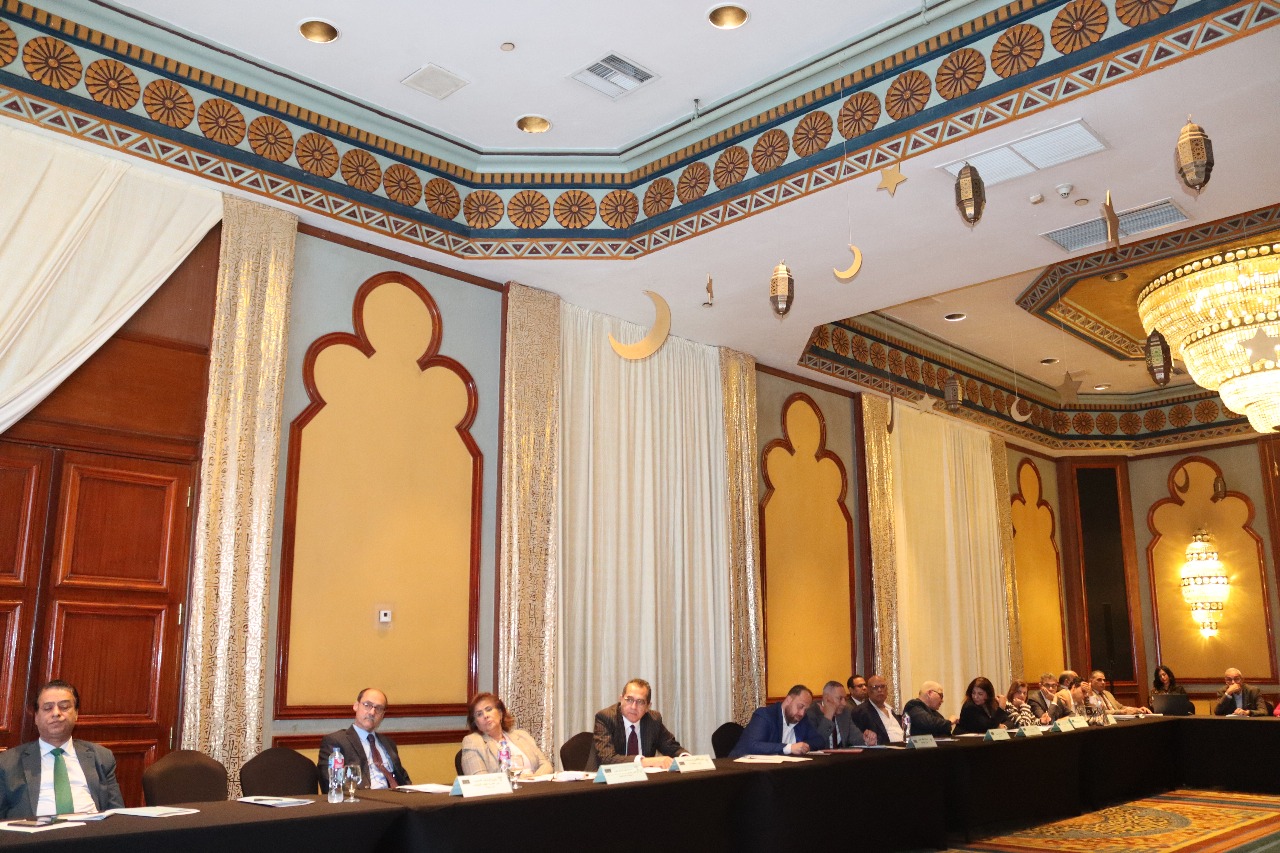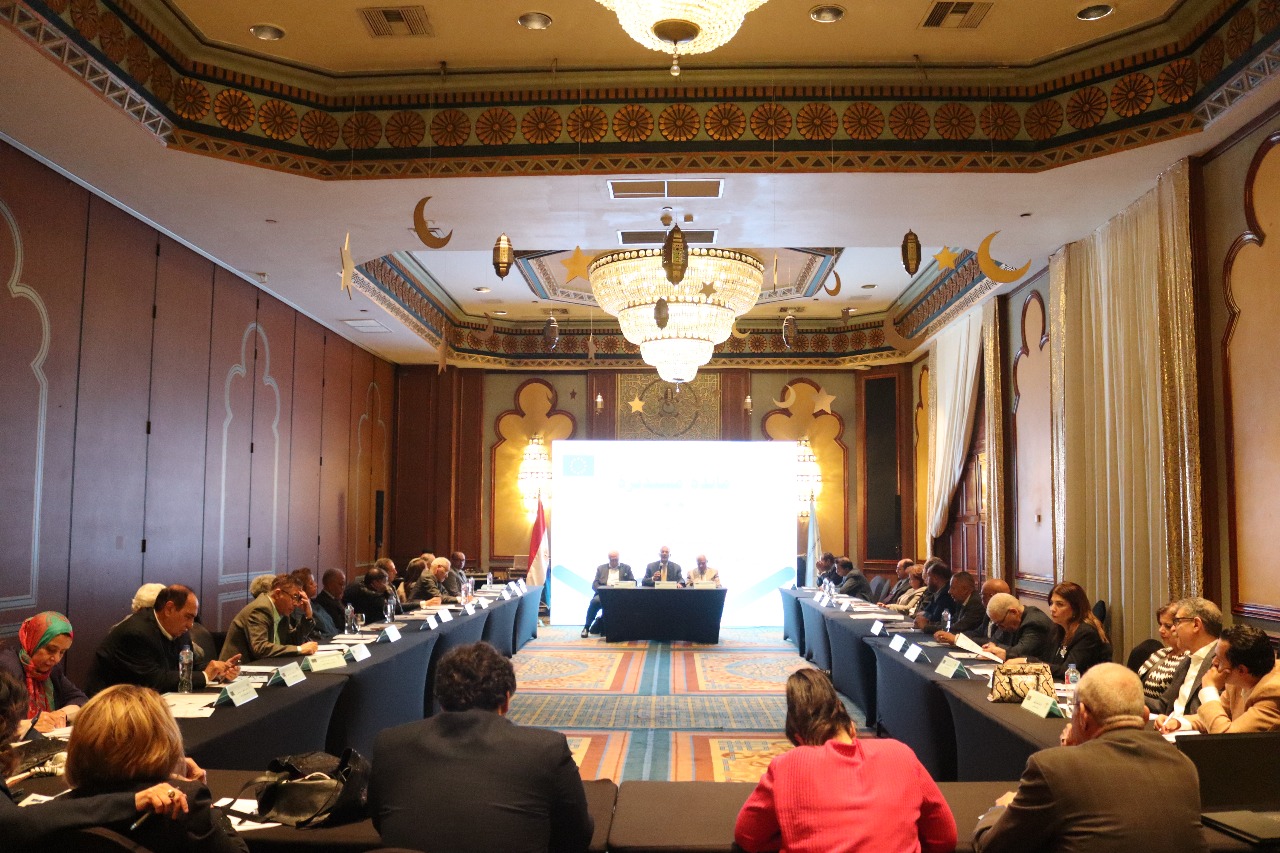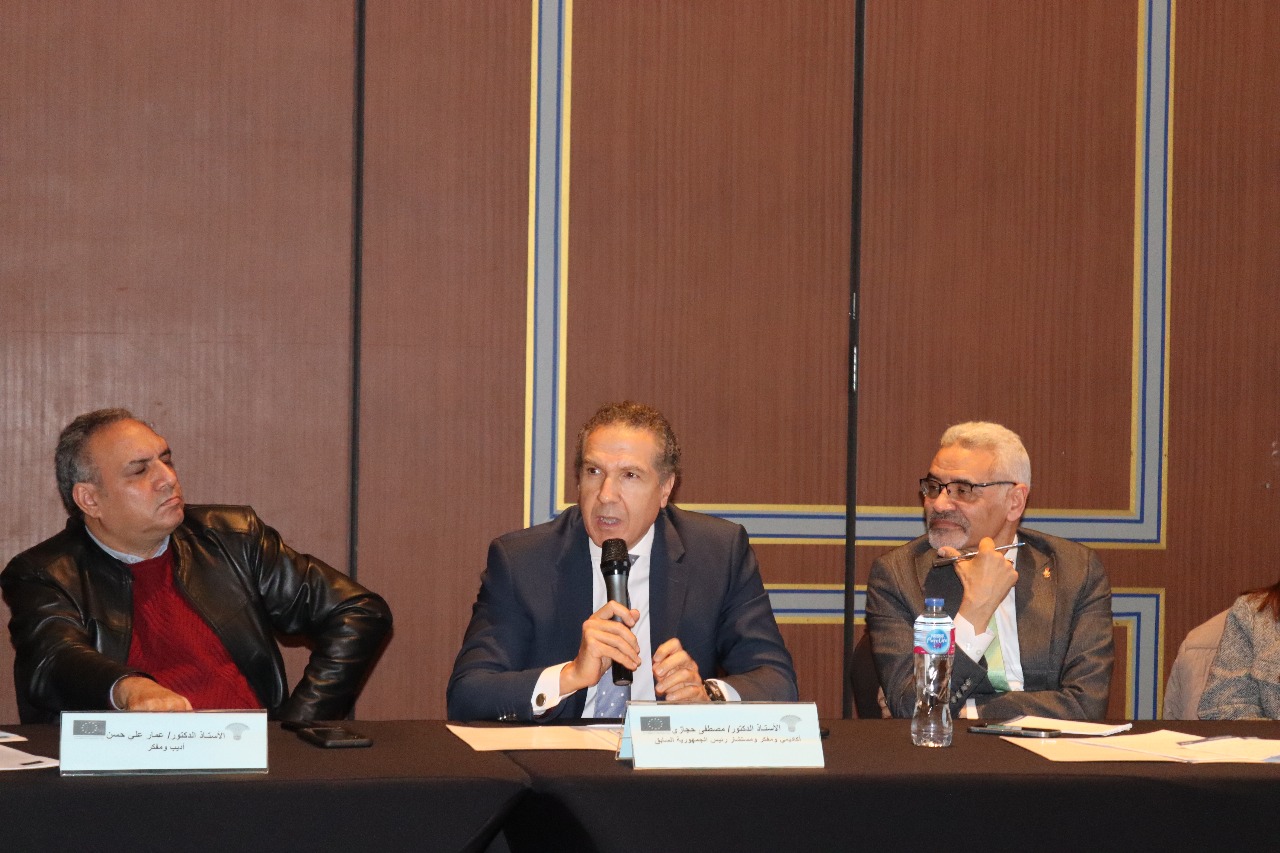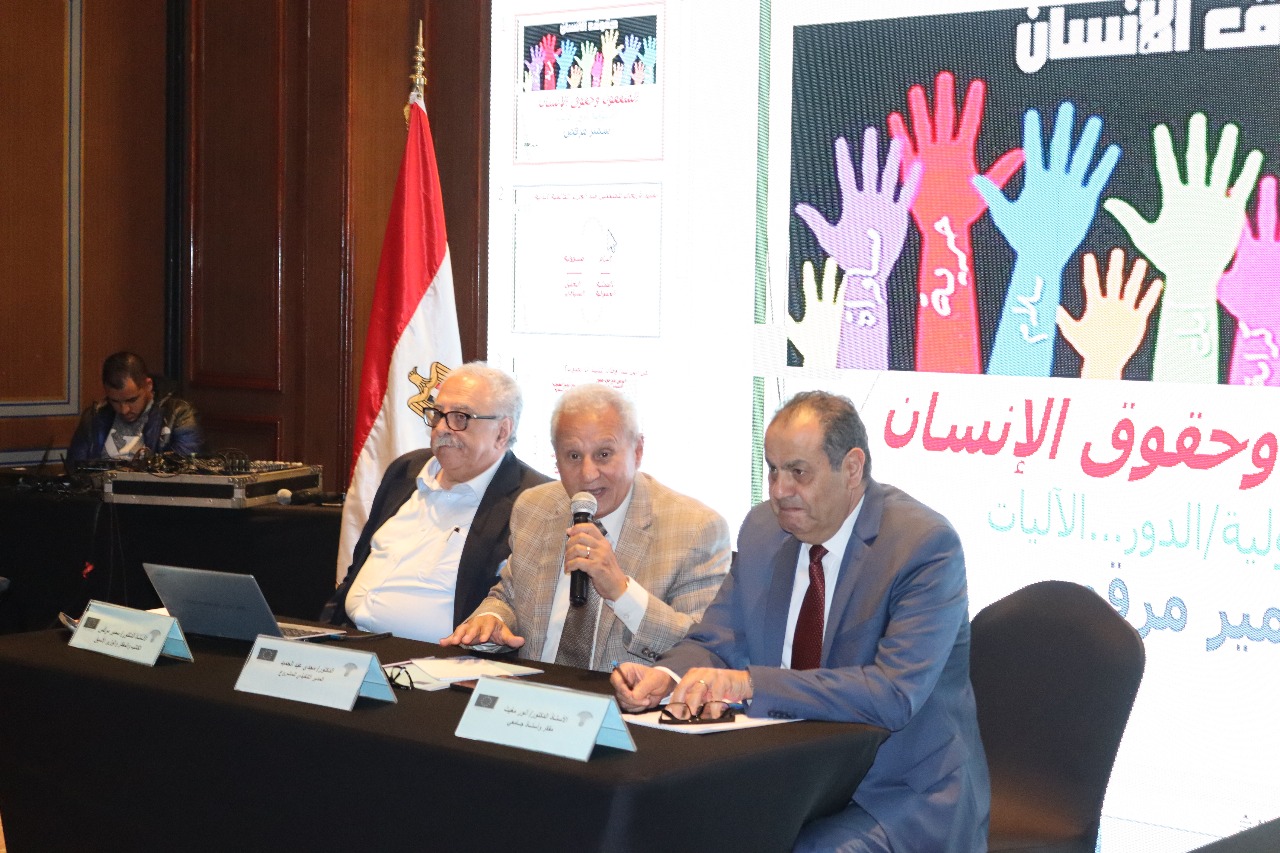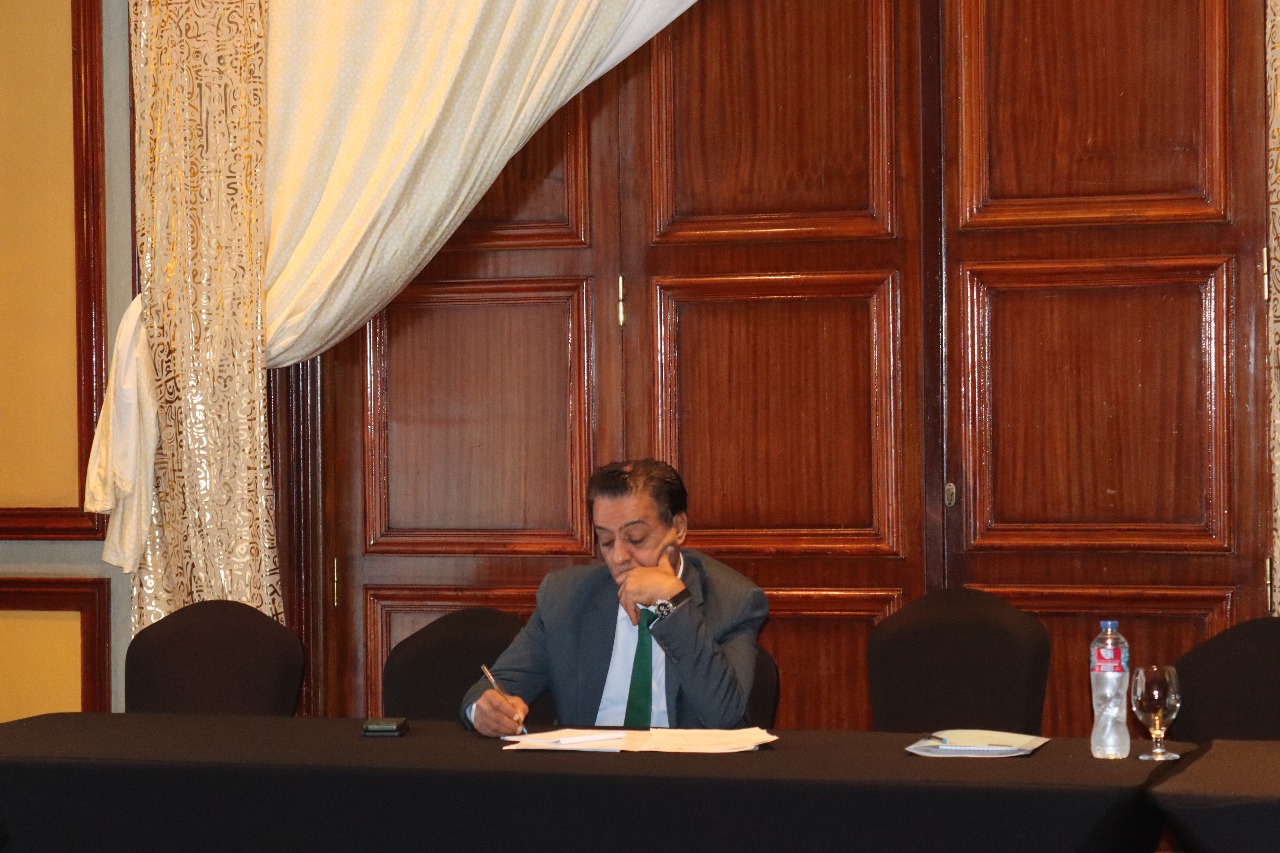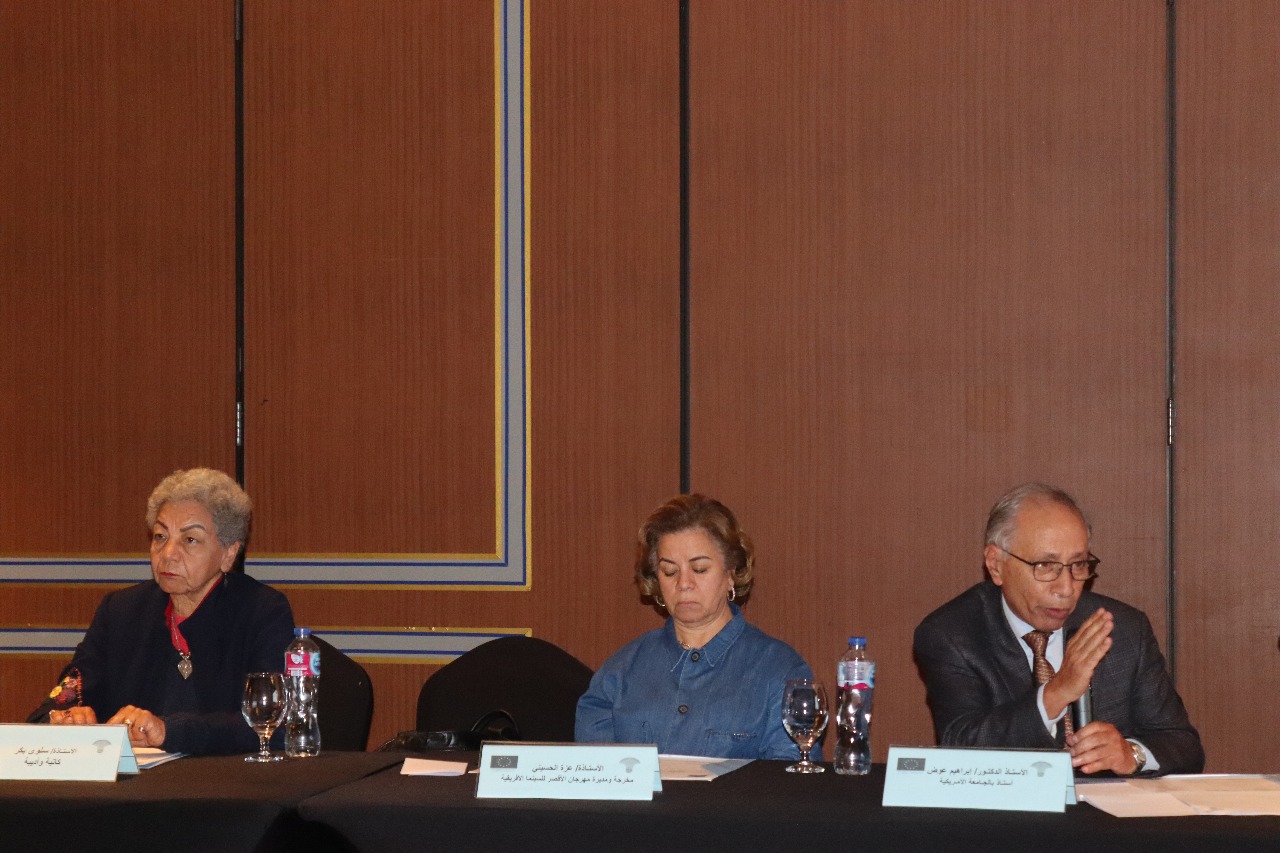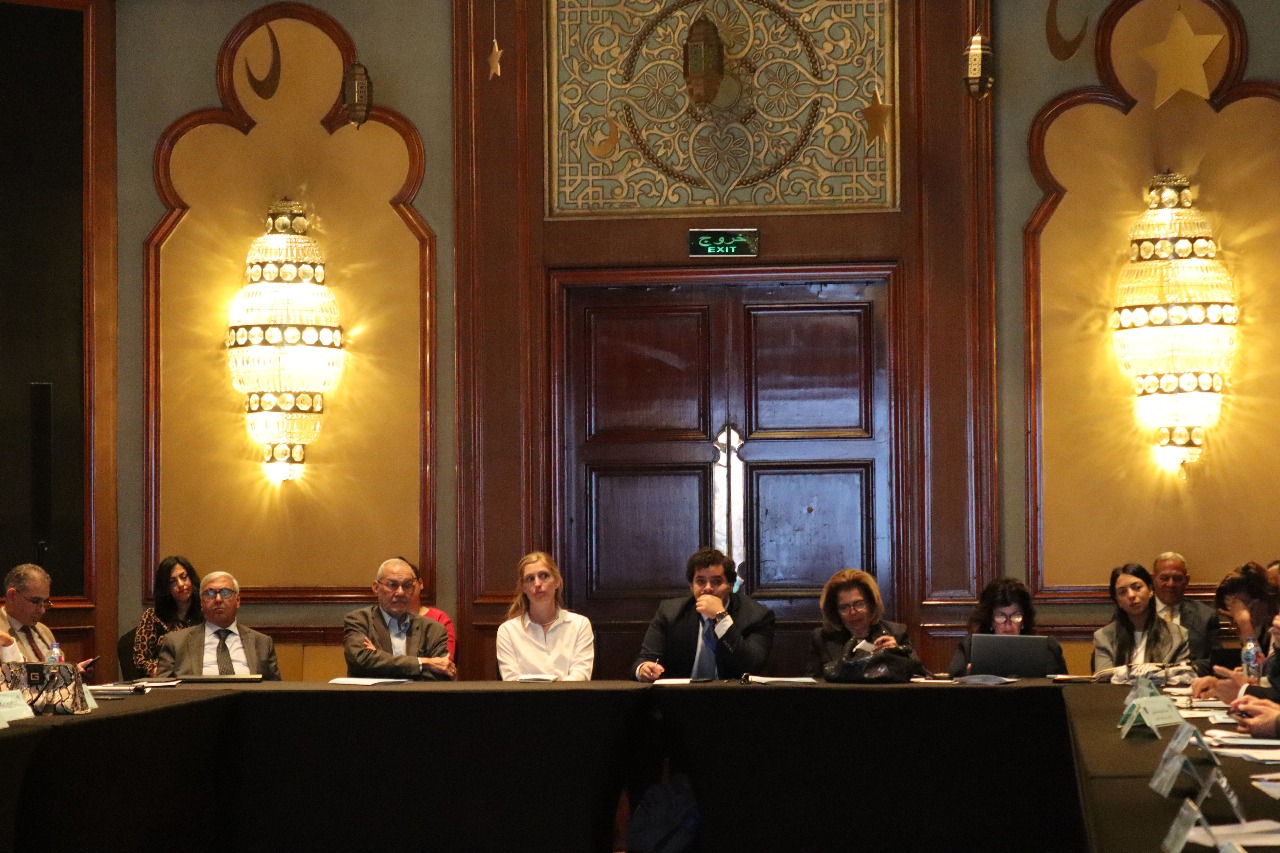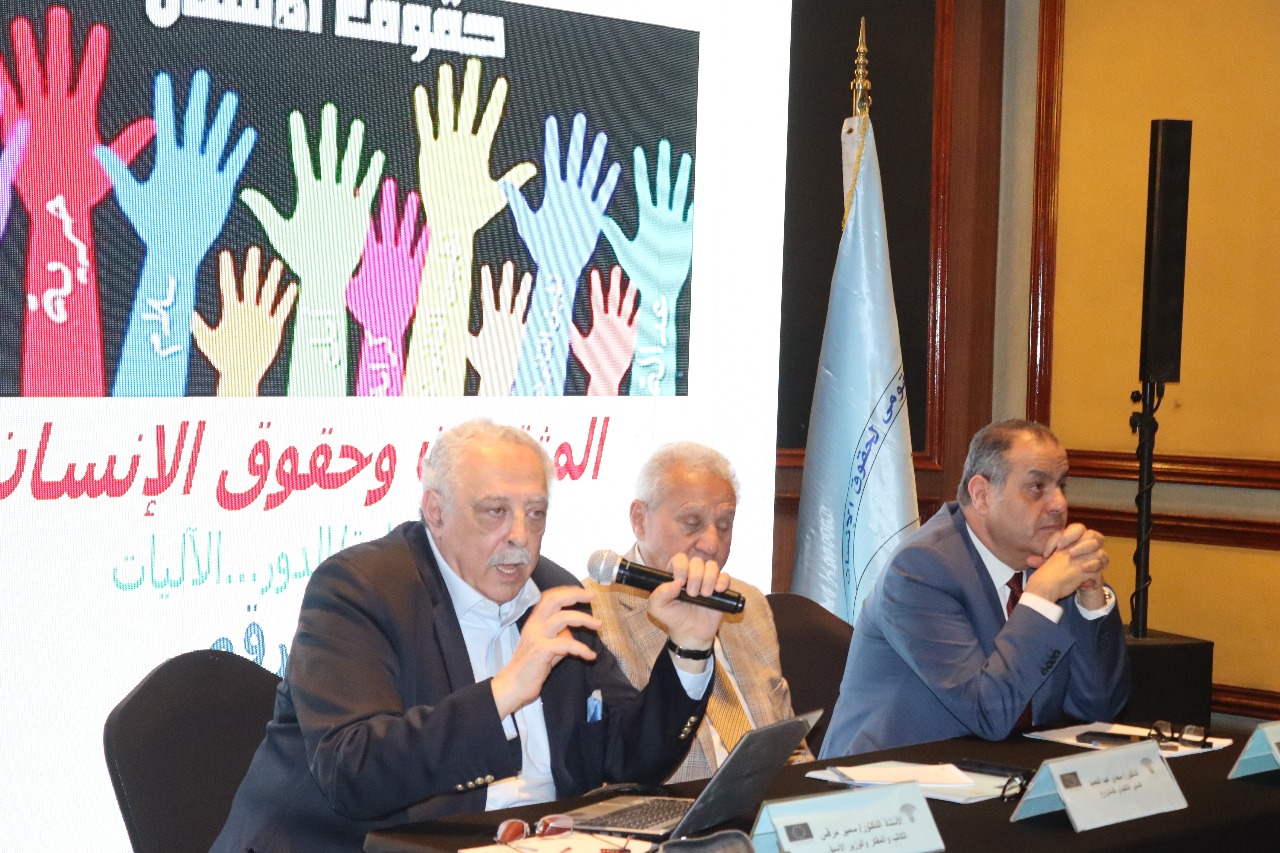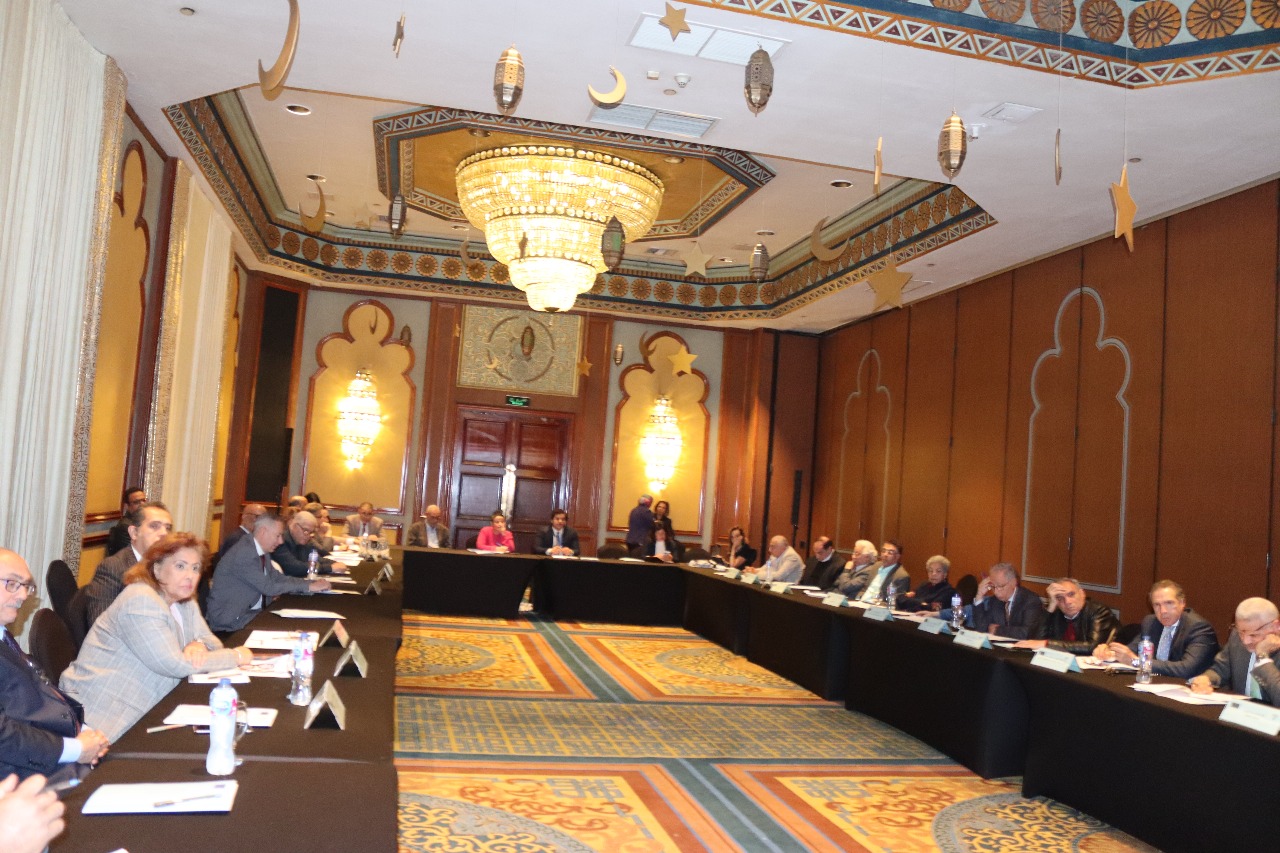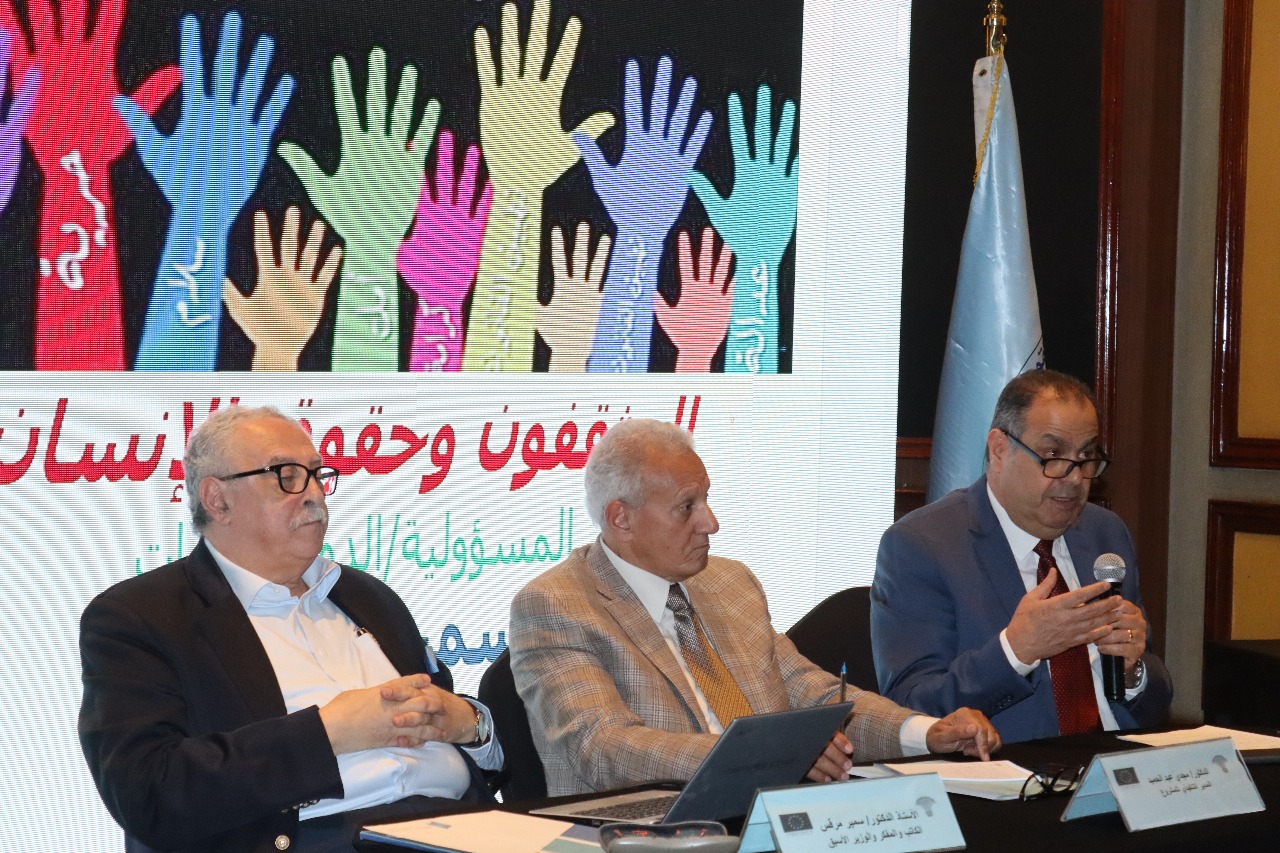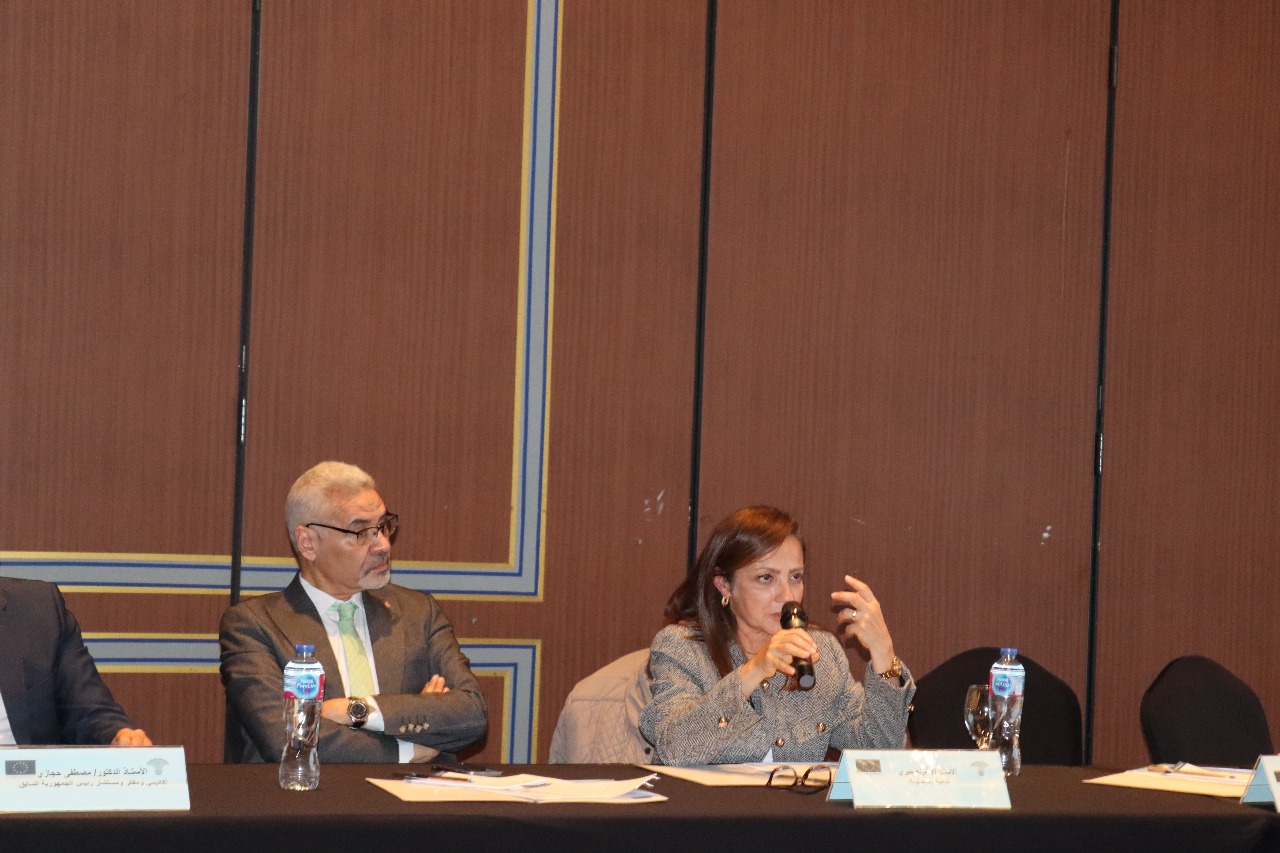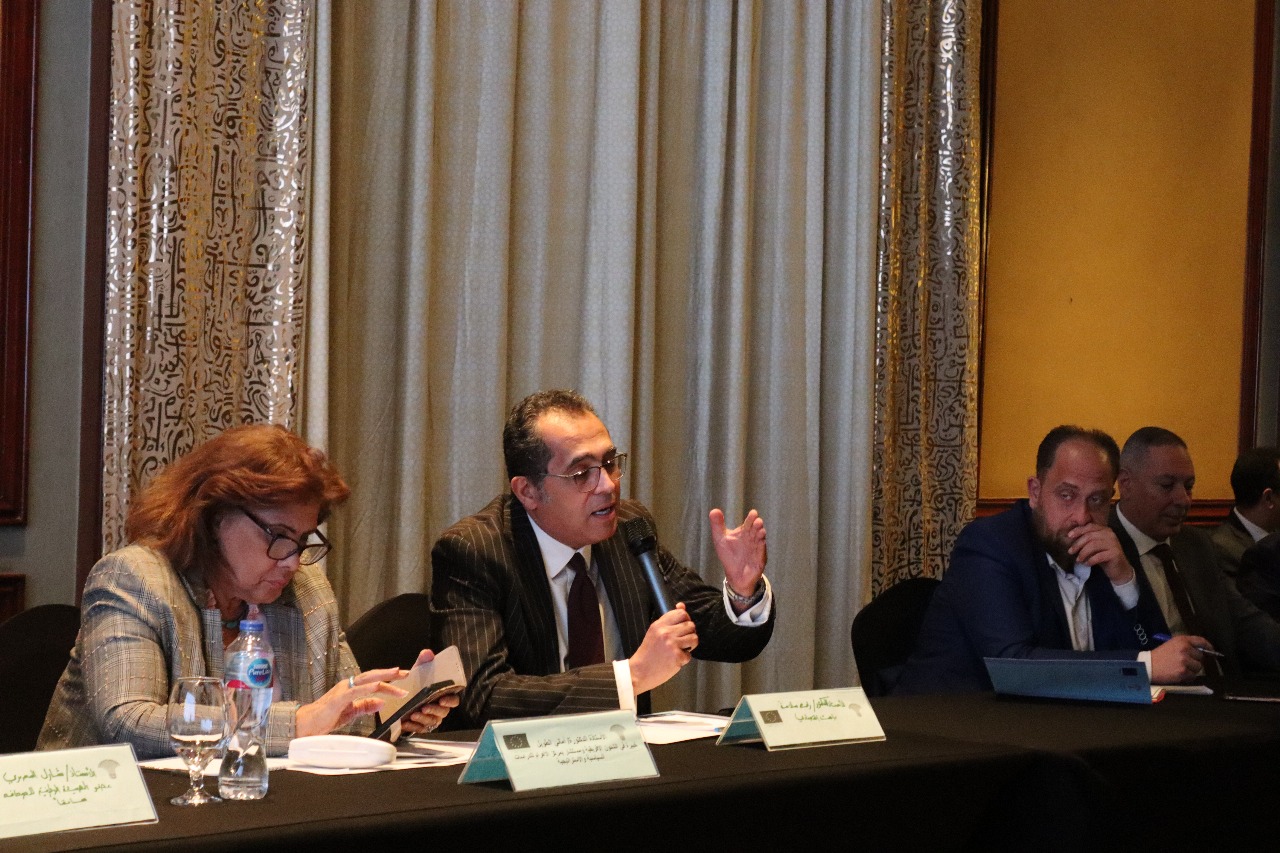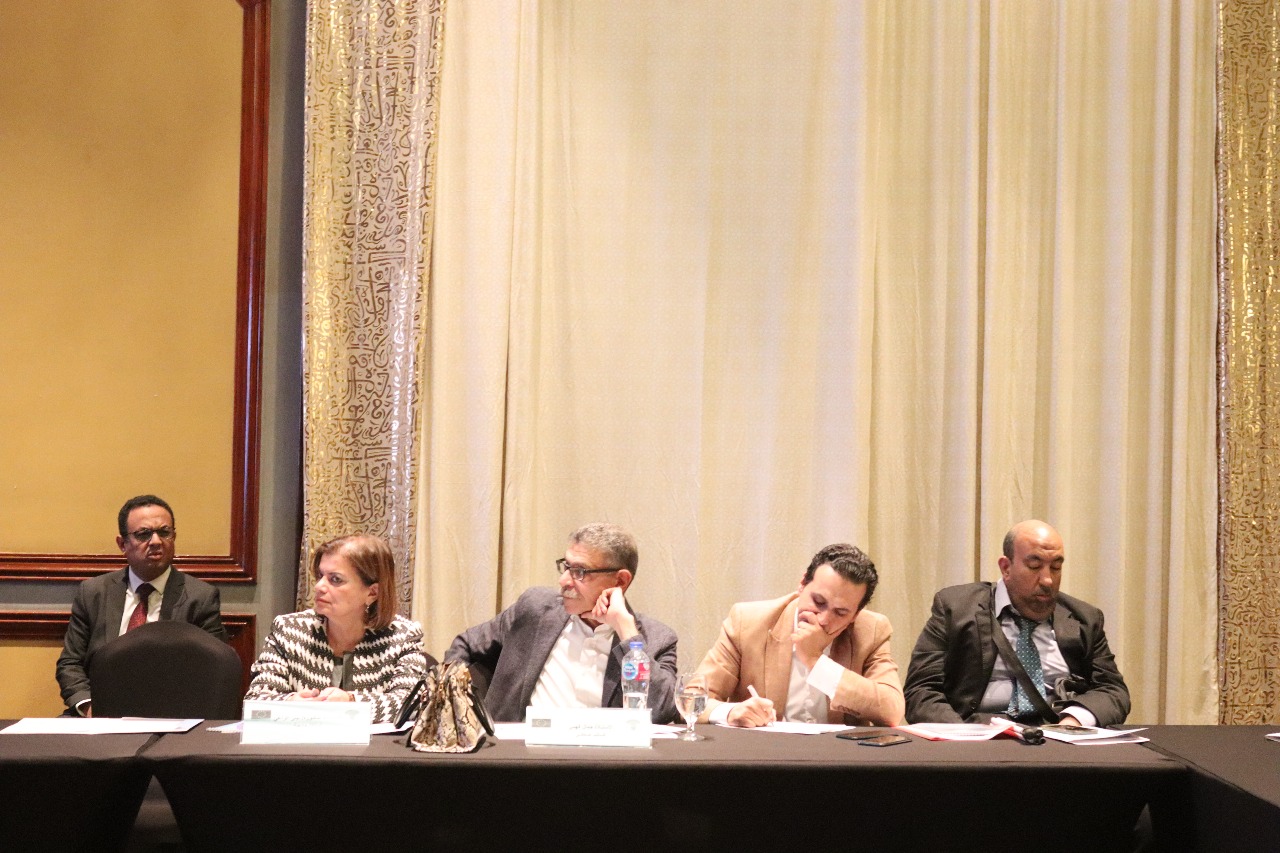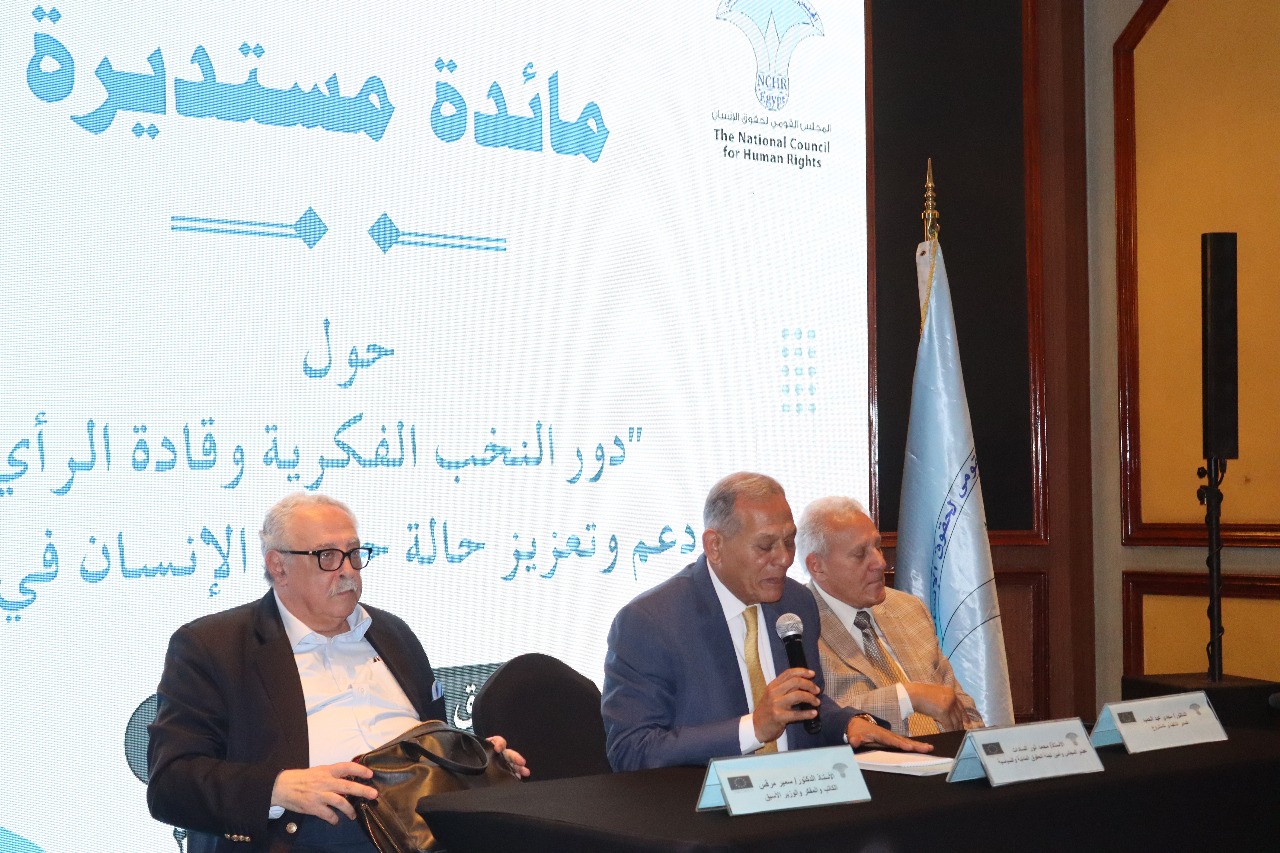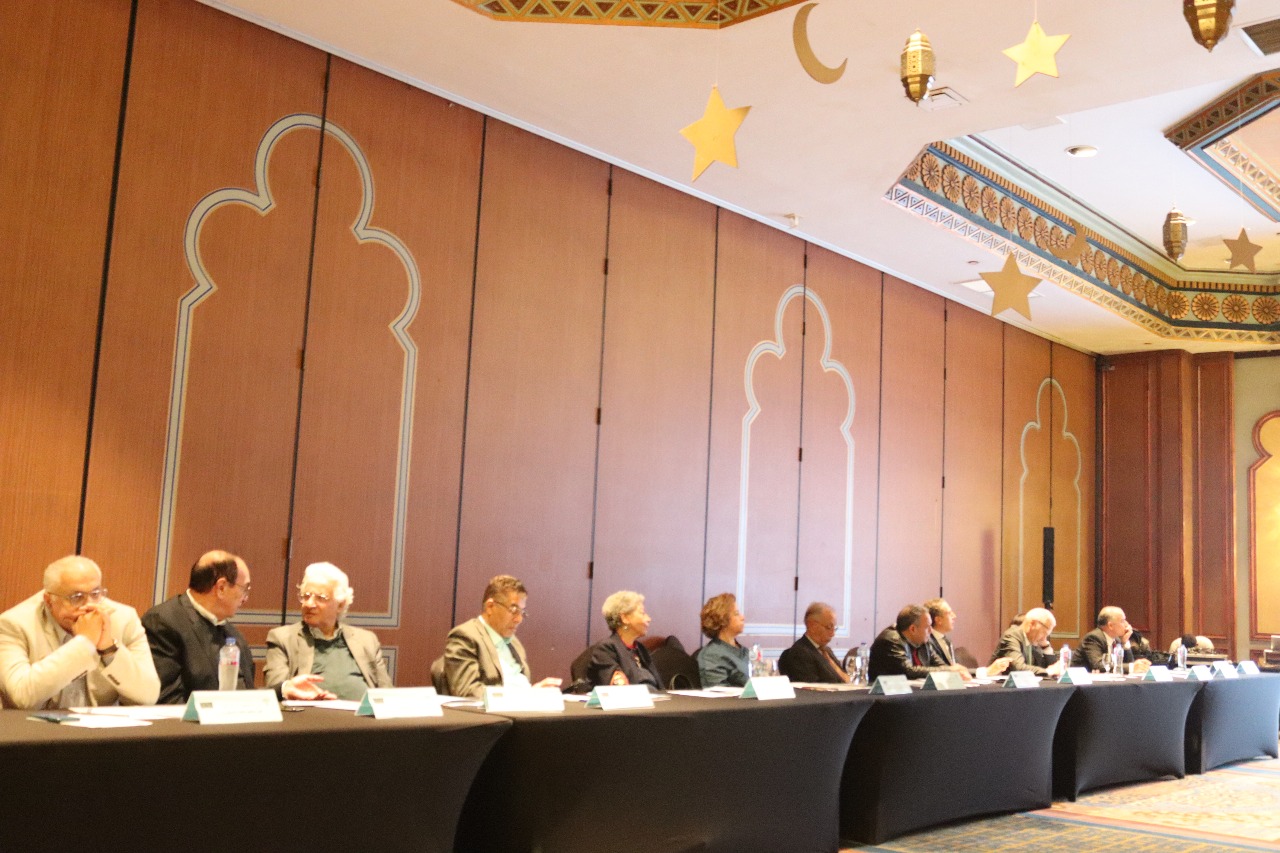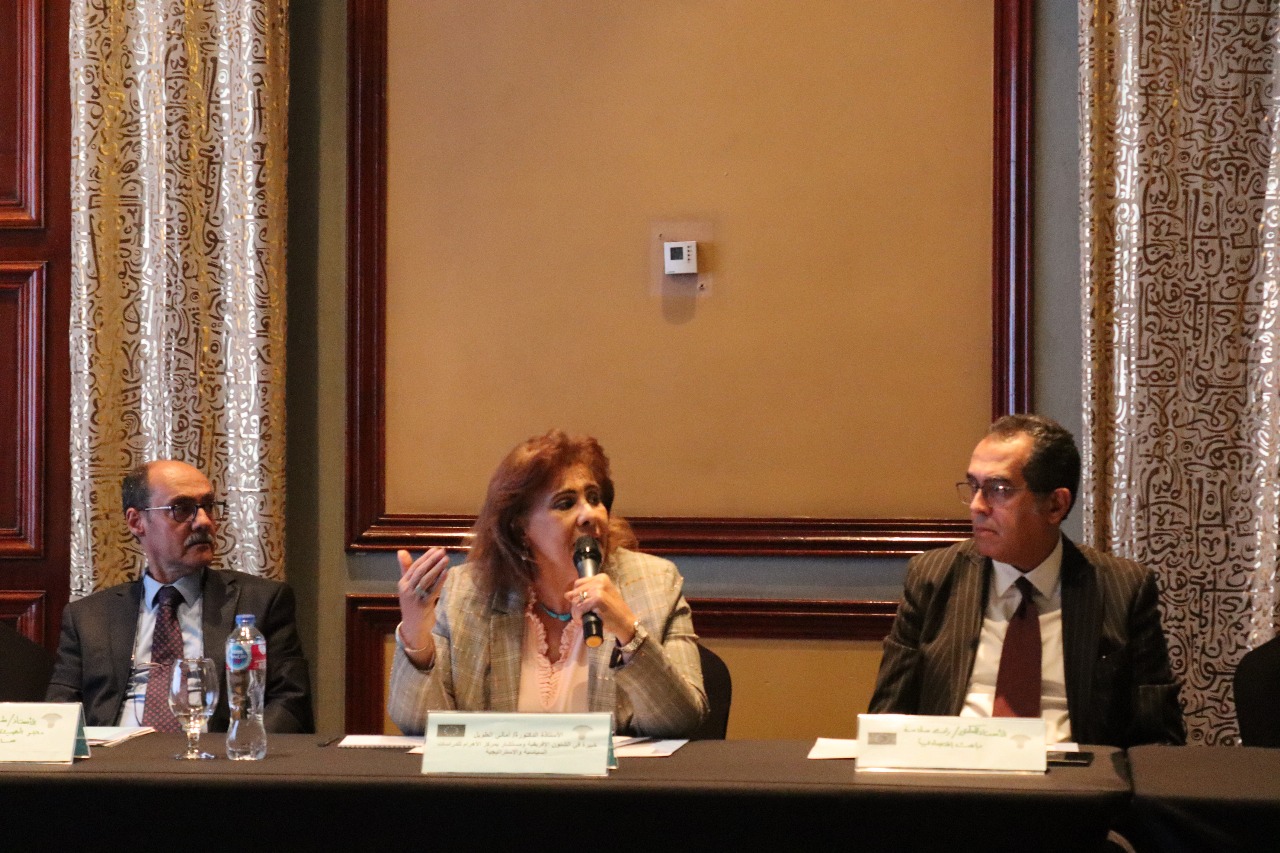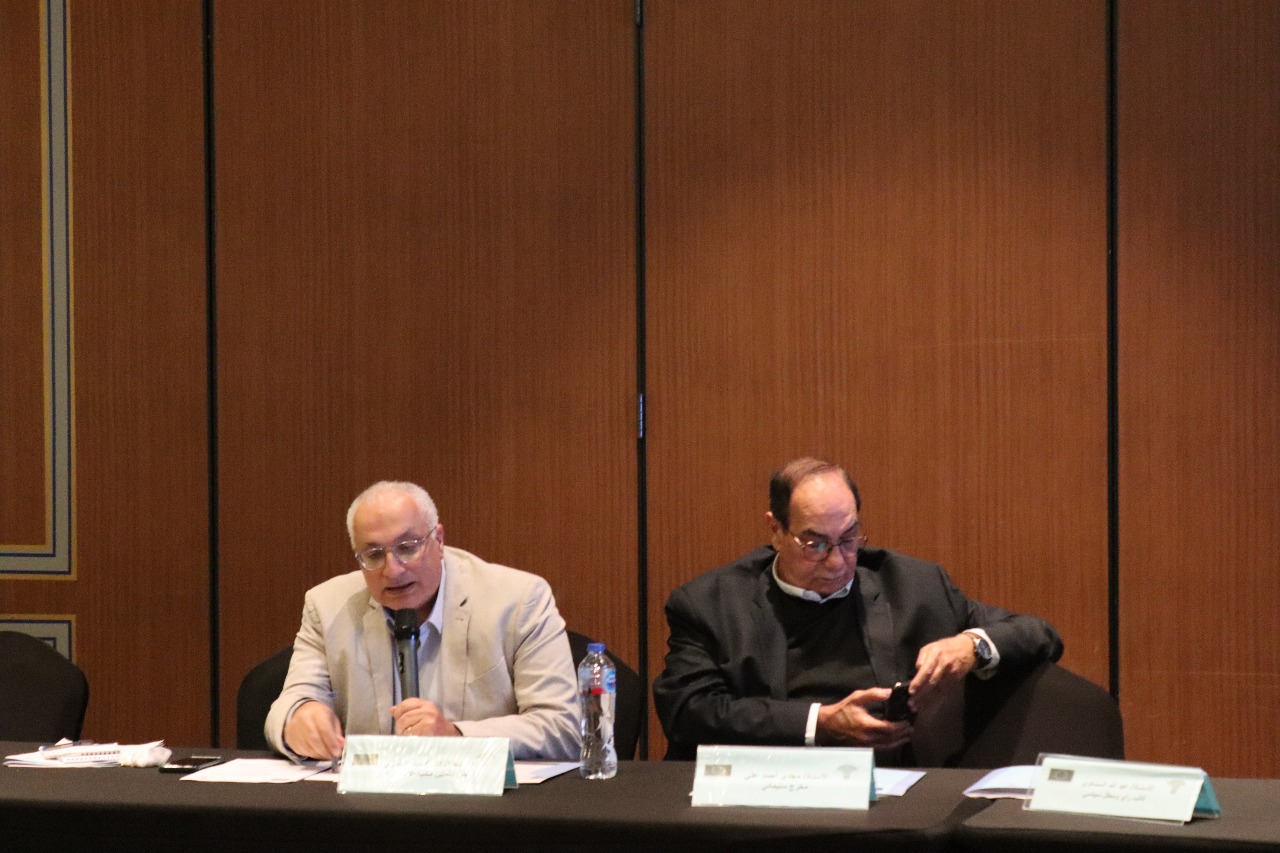NCHR convenes roundtable on "The Role of Intellectuals and Thought Leaders in the Promotion of a Human Rights Culture"
line with its mandate and ongoing efforts to promote freedom of expression and to deepen the culture of human rights within Egyptian society, the National Council for Human Rights (NCHR), through its Committee on Civil and Political Rights and in partnership with the Delegation of the European Union in Cairo, convened a roundtable discussion entitled: “The Role of Intellectuals and Thought Leaders in Supporting and Advancing the State of Human Rights in Egypt.” This roundtable formed part of the joint project between the NCHR and the European Union and brought together a diverse group of intellectuals, cultural figures, human rights defenders, and media professionals.
The roundtable was inaugurated NCHR President, Ambassador Moushira Khattab, who emphasized that sustained engagement with intellectuals and thought leaders is vital to fostering a human rights culture in Egypt. She underscored the critical role intellectuals play in shaping public discourse and promoting the values of dignity, equality, and human rights.
Ambassador Mahmoud Karem, Vice President of NCHR, reiterated the essential role of national institutions in the promotion and protection of human rights. He affirmed the State’s constitutional and international obligations to uphold rights and freedoms, stressing that constructive critique must be accompanied by practical and actionable proposals. He called upon public intellectuals to contribute to a balanced and pragmatic narrative that advances the national discourse on human rights and social cohesion.
The Chair of the Committee on Civil and Political Rights, stressed the importance of structured collaboration between the Council and intellectual actors in formulating effective and sustainable mechanisms to protect and promote human rights. He emphasized the need to harness intellectual contributions to expand public awareness and reinforce civic freedoms.
The roundtable concluded with a series of substantive recommendations, including:
A call for the release of all individuals detained in connection with the exercise of their right to freedom of expression, in accordance with constitutional protections and Egypt’s international human rights obligations;
Strengthening the mandate of the Syndicate of Acting and Cinematic Professions and granting it a meaningful legislative role to preserve its institutional integrity and elevate artistic standards in the fields of cinema and television;
Conducting a comprehensive assessment of the integration of human rights education at the university level, and exploring the effective implementation of civic education curricula in schools, particularly through alignment with the objectives of the National Human Rights Strategy and the incorporation of human rights content in educational frameworks;
The Council should assume leadership in advocating for anti-discrimination legislation currently under consideration in the context of the National Dialogue.
Participants further discussed avenues for enhancing institutional engagement with Egypt’s intellectual and cultural communities, the integration of human rights as a foundational component of the national identity, and the importance of multilateral cooperation to promote and entrench human rights values across all sectors.
This roundtable represents a continuation of the NCHR’s strategic commitment to fostering inclusive dialogue, drawing upon the expertise of opinion leaders, and contributing to the development of a coherent and sustainable national framework for the promotion and protection of hum
an rights.





 English
English
 Arabic
Arabic
 French
French
